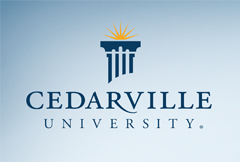Keywords
Genetics, ethics, privacy, Human Genome Project, Genetic Information Nondiscrimination Act, GINA
Abstract
Since the completion in 2003 of the Human Genome Project’s initial goal to map all the genes and discover the complete nucleotide sequence in the human genome, opportunities for many significant medical advances have opened up to us, including gene therapies for various genetically-linked medical disorders, the ability to create “custom-made” drugs, and early, reliable diagnosis of genetic predispositions to disease. Genetic testing, the inspection of a person’s DNA to identify mutated sequences, is medically relevant for individuals. However, along with the undeniable benefits this knowledge brings, serious questions have arisen concerning how this knowledge should be handled to protect the rights of individuals. Two major areas of concern are the “privacy and confidentiality of genetic information, and fairness in the use of genetic information by insurers, employers, courts, schools, adoption agencies, and the military” as noted on the Human Genome Project website (www.ornl.gov/hgmis). Obviously, as we noted in the case study, information gained from genetic testing may be abused. This paper will examine the role of healthcare professionals to ensure that such information remains protected. We will then discuss the moral responsibility to handle genetic information in an ethical manner. We will reflect on the traditional principles of medical ethics derived from the Hippocratic Oath to inform our thinking. Finally, we will briefly examine the laws and legal protections for individuals and their genetic information that have already been established.
DOI
10.15385/jce.2010.10.1.1
Recommended Citation
Struble, Anna-Marie; Valji, Emily; and Lilly, Jennifer
(2010)
"Safeguarding Genetic Privacy,"
CedarEthics: A Journal of Critical Thinking in Bioethics: Vol. 10:
No.
1, Article 1.
DOI: 10.15385/jce.2010.10.1.1
Available at:
https://digitalcommons.cedarville.edu/cedarethics/vol10/iss1/1
Creative Commons License

This work is licensed under a Creative Commons Attribution-Noncommercial-No Derivative Works 3.0 License.
Disclaimer
The CedarCommons repository provides a publication platform for fully open access journals, which means that all articles are available on the Internet to all users immediately upon publication. However, the opinions and sentiments expressed by the authors of articles published in our journals do not necessarily indicate the endorsement or reflect the views of Digital Services, the Centennial Library, or Cedarville University and its employees. The authors are solely responsible for the content of their work. Please address questions to the Digital Services staff.

